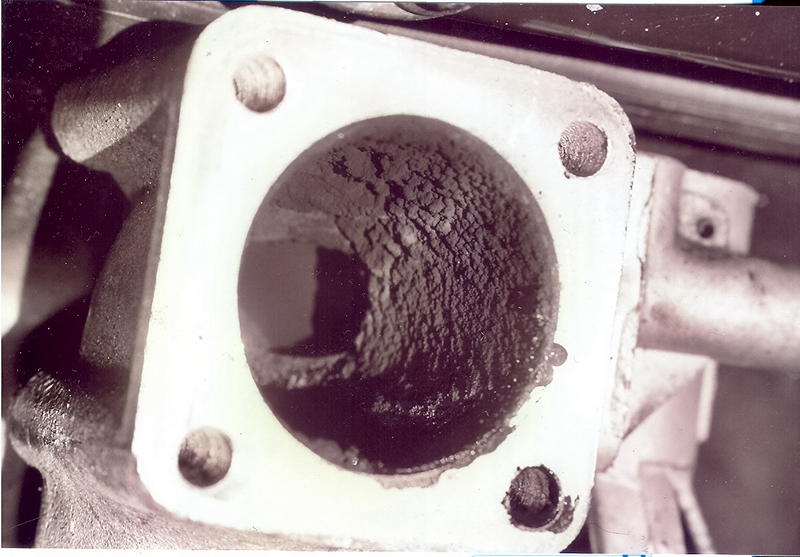a 6 spped tranny:
You won't gain any benefits from that
- no better mpg
- no higher top speed
engine max efficiency is calculated at 93Km/h-95km/h, any higher speed will consume to much fuel with the 3.73 gearing.( stock tires, max 235/75R15)
Oil in the inintercooler
This happens (and is normal!) when boost pressure isn't high enough to seal the compressor wheel against the turbo housing. A small amount of oil will find its way into the intercooler.
Another possible way is the crankcase ventilation. You shouln't be worry about this if it is less than some drops and as long as you will not recognize an oil level loss.
To much oil in the PCV is an alarm signal!! Either your turbo oil drain is plugged or restricted or blow-by is too high. Time to check the air filter too!
A lot of blow-by indicates worn pistons rings and neglected oilchanges in the past as already mentioned in the begining.
This crankcase ventilation oil is used as an example in early VW Turbo Diesel engines to lube the intake valve( a diesel has no intake valve lubrication otherwise)
not a bad idea at all. It becomes worse in combination with the EGR! Oil and soot builds up a sticky goey glue in the intake.
Just have a look at this intake ellbow:

Soot and oil as a combination are terrible there is a layer 3-5mm thick.
You can imagine what that does to your engine performance. The engine starves for air. Air starving does mean high EGT's. High EGT's aren't good for your head at all.
What can you do to avoid oil in the intake?
Avoid extended idle or city stop-n-go.
Or install an oil trap can into the PCV tubing. You won't be able to supress oil leaking from the turbo- it won't matter at all, if it gets into the chamber it will be burned safely.
I do worry about EGR soot. An EGR delete is the thing to do.
Don't worry about higher combustion temperatures. EGR is only active during partial load.
It dillutes the intake air with 7% exhaust gasses. This will take out( yes, you read correct!!) combustion heat of the combustion process and reducing emissons.
Closing EGR is not allowed due to environment protection...think of that what you want to think about it.
We have a strict emisson control called safety inspection and the emissons reader does not get the delete.
Don't worry about a engine failure light. It has no connection to the delete it if you do it without interfere electronics.
What are the benefits of EGR delete?
Some claim less fuel consumption, I didn't...
Some claim a better part throttle response. I didn't...
Some claim more power. I didn't...
No soot in the intake. YES! That's enough for me...
@dgrn1708erin:
I hope that answers your question, if you have further questions feel free to ask.
You can't get 100% reliabilty by a visual check. You need more like extra gauges, and checks like yearly compression and injector ( spray pattern, pressure build up, release pressure)
If you want more to know about that, take the time and begin to start to read the FSM manual for your model year. There are a lot of service procedures and tests in it to keep you busy.